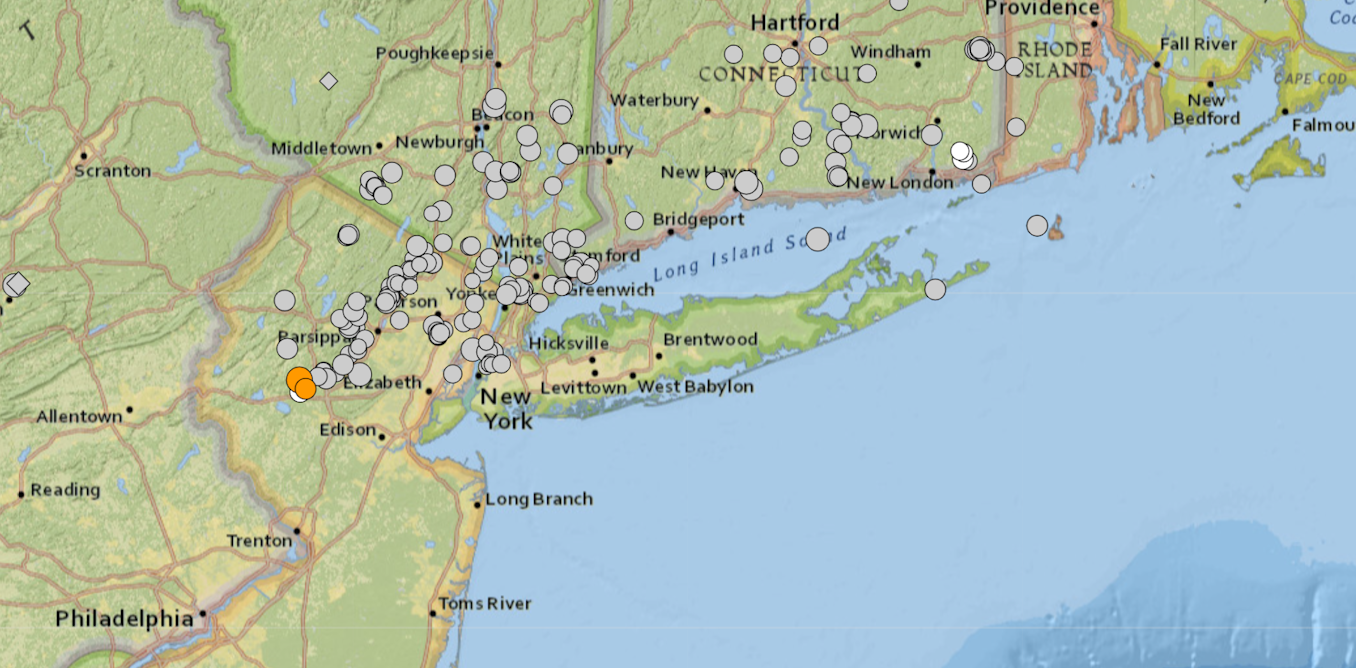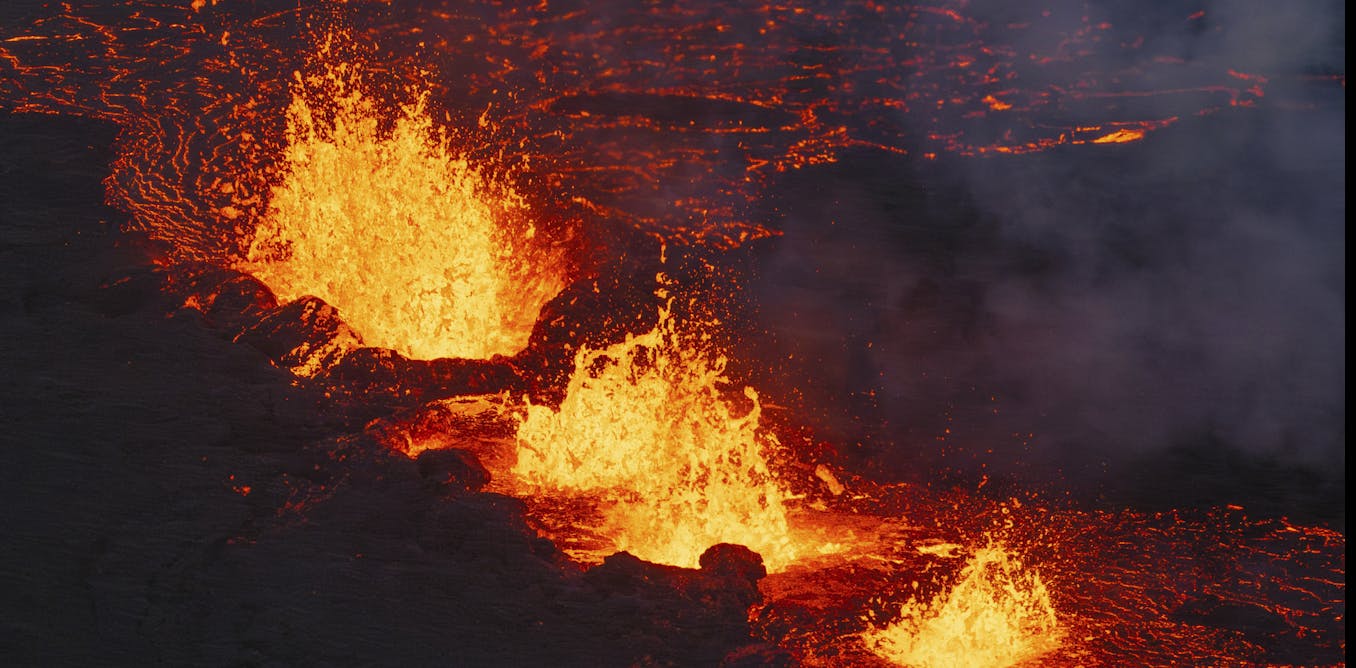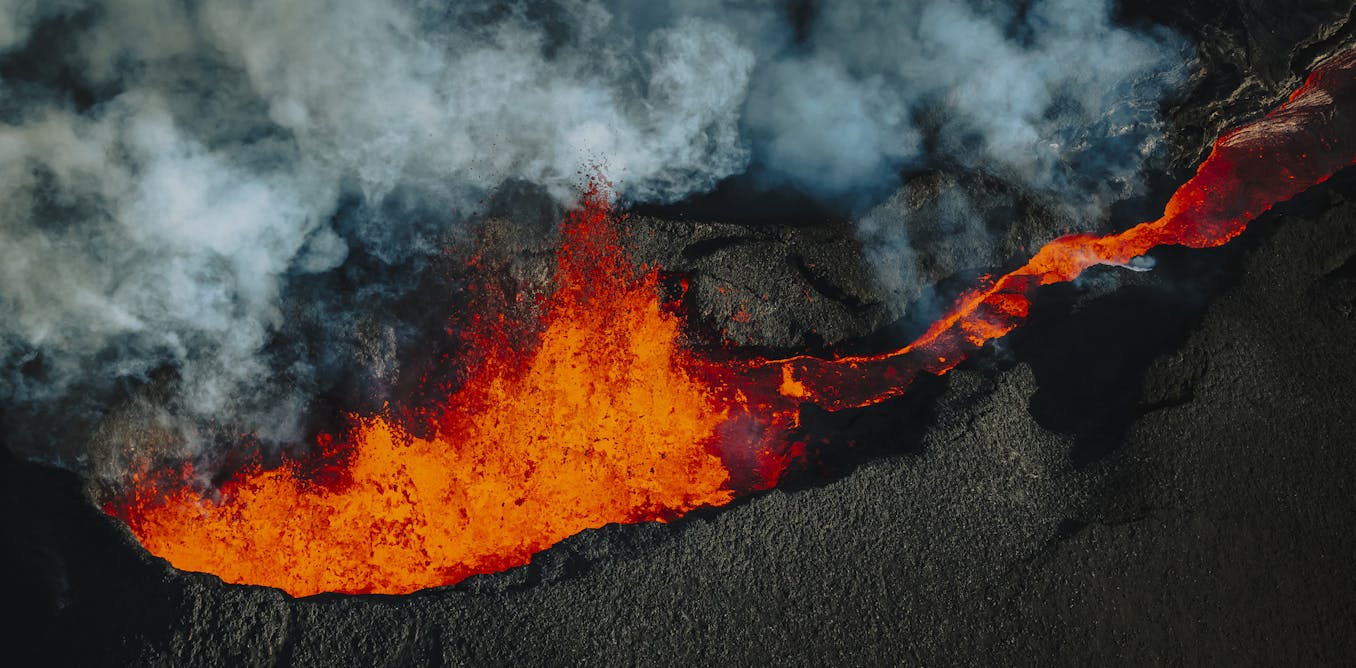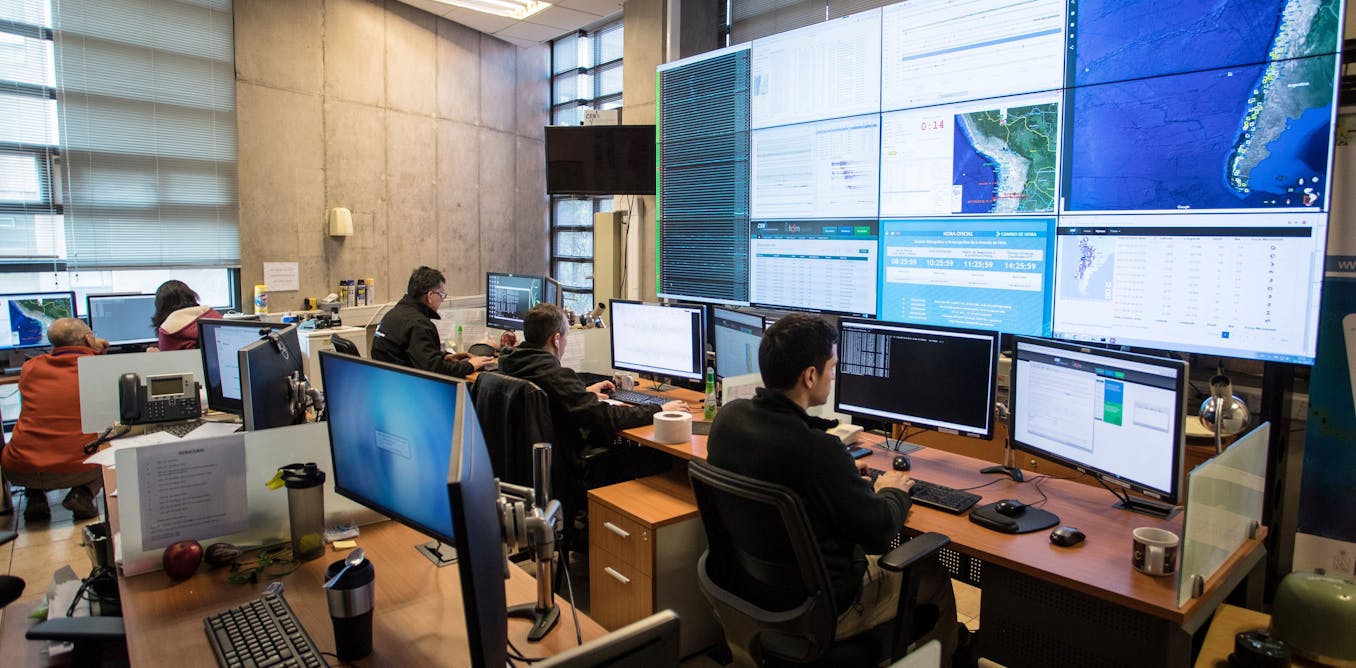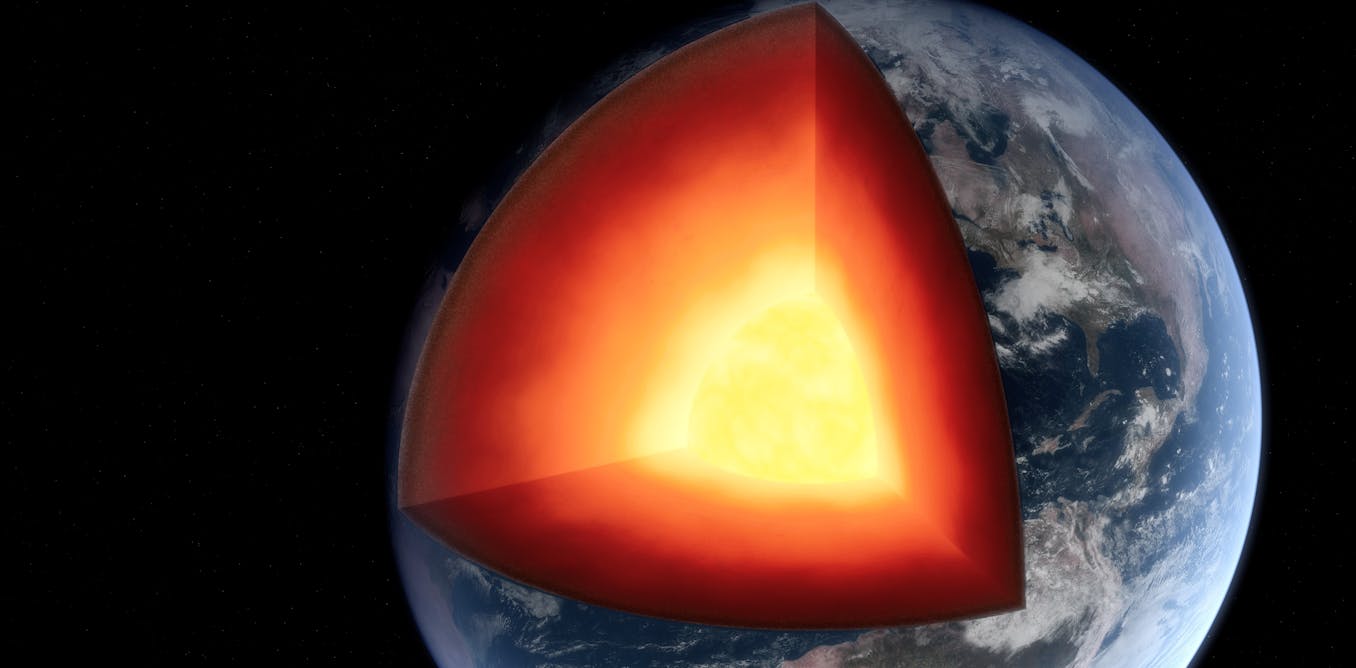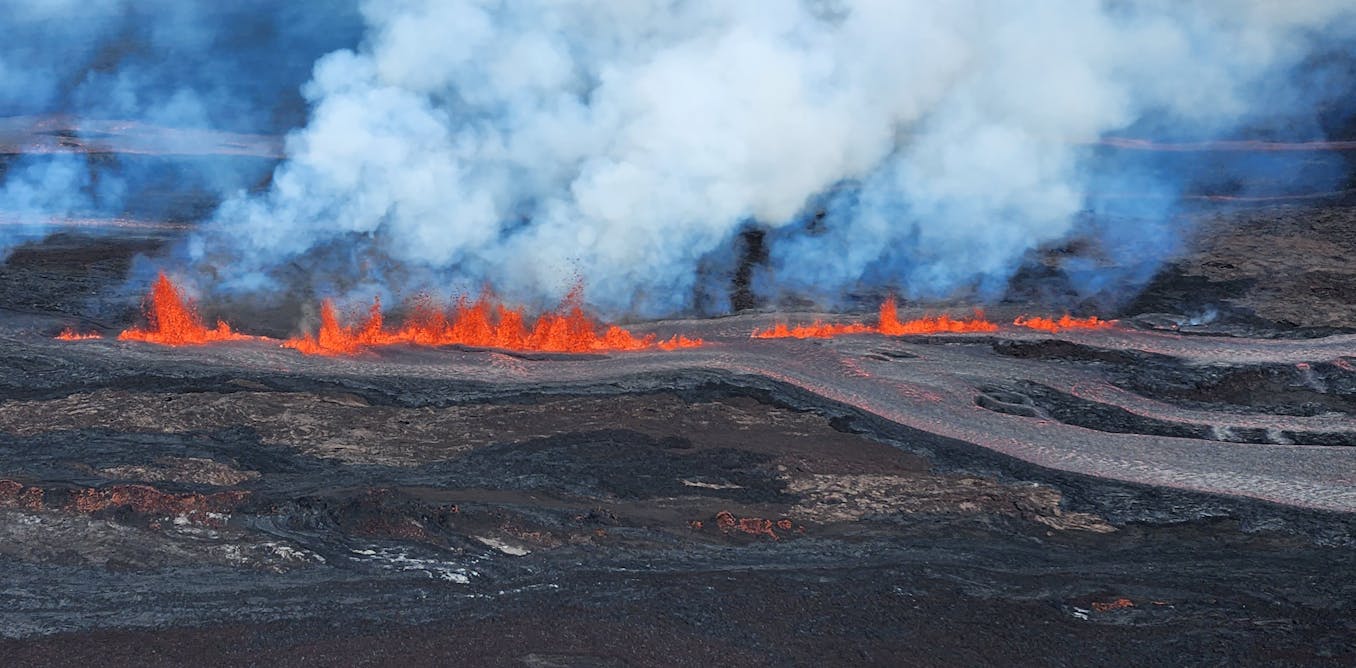What causes earthquakes in the Northeast, like the magnitude 4.8 that shook New Jersey? A geoscientist explains
The earthquake, one of New Jersey’s largest on record, could be felt from Maryland to Boston. But don’t read too much into it.
April 5, 2024 • ~4 min
Volcanic Iceland is rumbling again as magma rises − a geologist explains eruptions in the land of fire and ice
Iceland’s volcanic activity is generally tame compared with explosive eruptions along the Pacific’s Ring of Fire. This time, it’s shaking up a town.
Nov. 15, 2023 • ~9 min
Why earthquakes happen all the time in Britain but not in Ireland
Variations in the thickness of tectonic plates may explain why Britain experiences many more earthquakes than neighbouring Ireland.
July 6, 2023 • ~7 min
Seismologists can't predict an impending earthquake, but longer term forecasts and brief warnings after one starts are possible
The idea that scientists could warn a region that a big quake was coming at a certain time – with enough advance notice for large-scale preparation and evacuation – remains a dream, not a reality.
Feb. 15, 2023 • ~10 min
How has the inside of the Earth stayed as hot as the Sun's surface for billions of years?
Starting at the surface, you would have to dig nearly 2,000 miles before reaching the Earth’s core. No one could survive that trip – and the 10,000-degree F heat once there would vaporize you anyway.
Jan. 23, 2023 • ~7 min
Where Mauna Loa’s lava is coming from – and why Hawaii’s volcanoes are different from most
A scientist who led one of the first projects to map the Hawaiian Islands’ deep volcanic plumbing explains what’s going on under the surface as Mauna Loa erupts.
Nov. 30, 2022 • ~6 min
Where Mauna Loa's lava comes from – and why Hawaii's volcanoes are different from most
A scientist who led one of the first projects to map the Hawaiian Islands’ deep volcanic plumbing explains what’s going on under the surface as Mauna Loa erupts.
Nov. 30, 2022 • ~6 min
/
2


